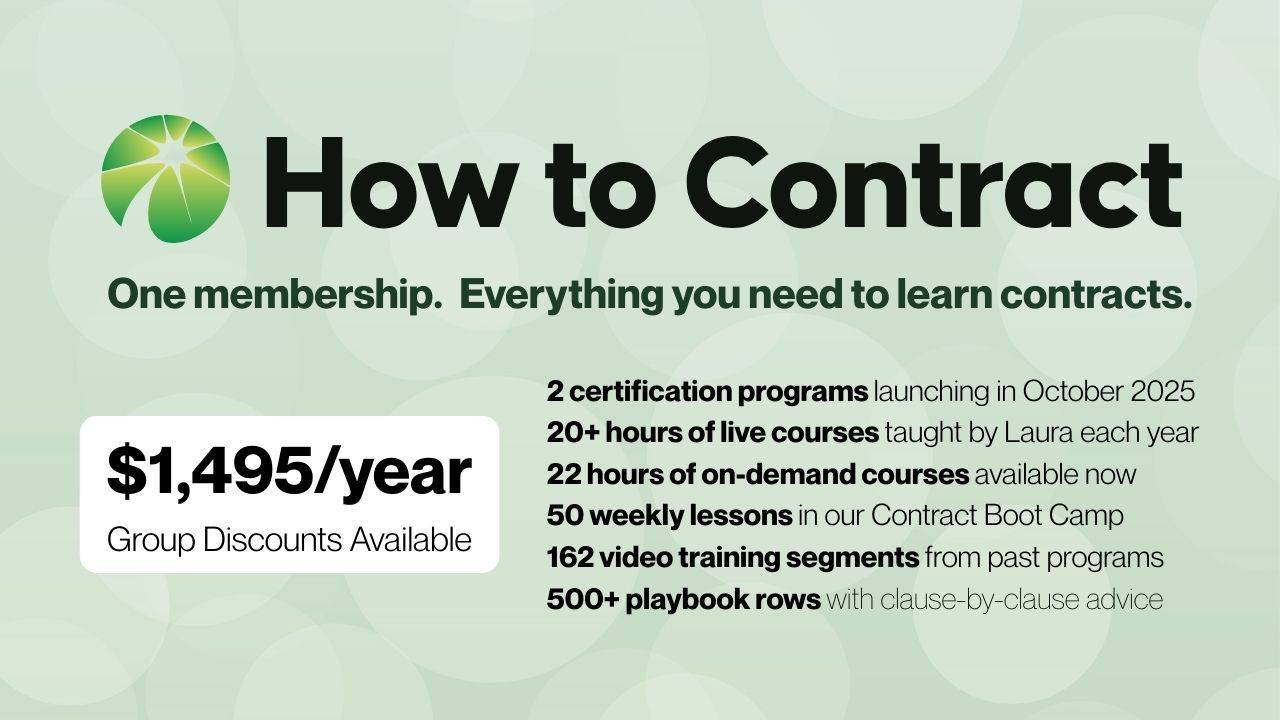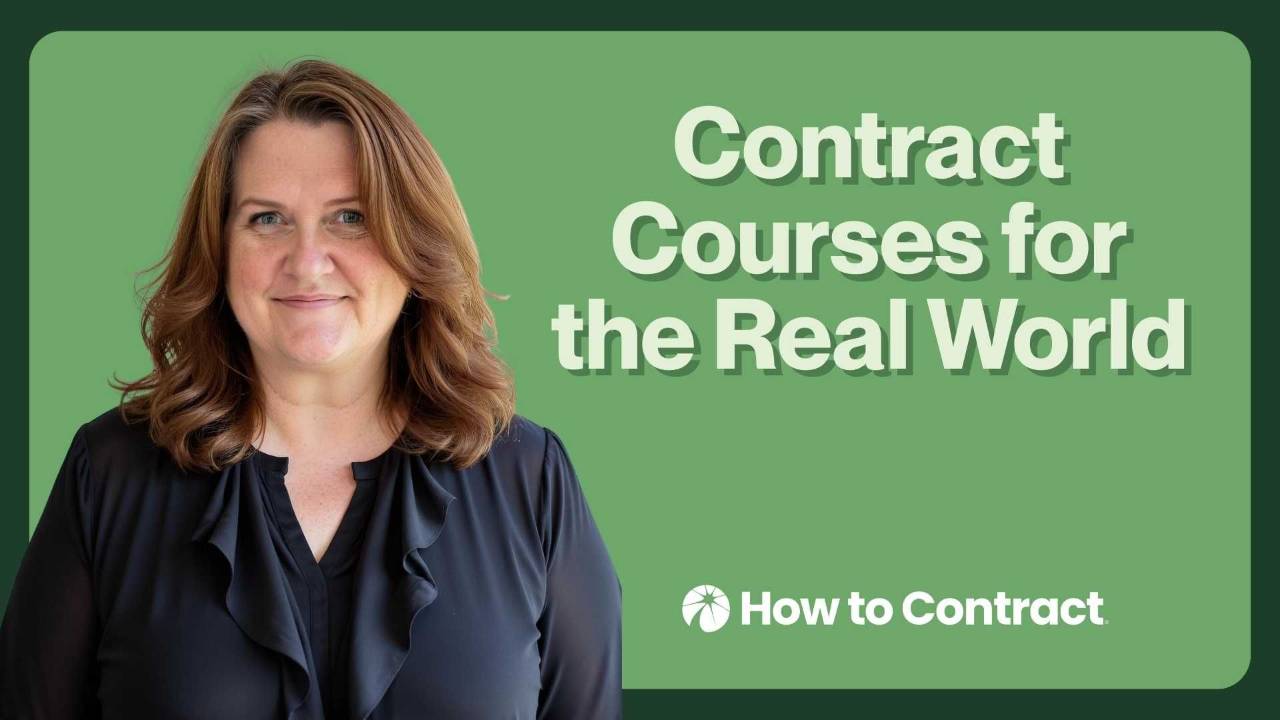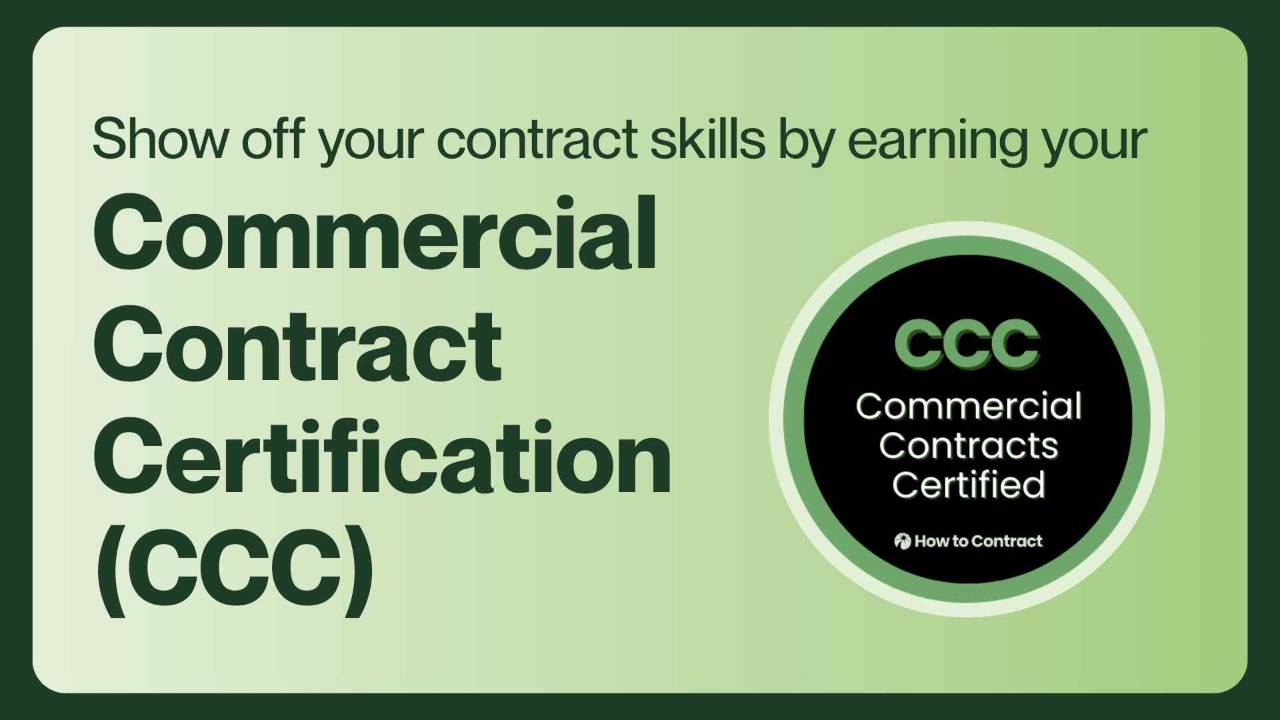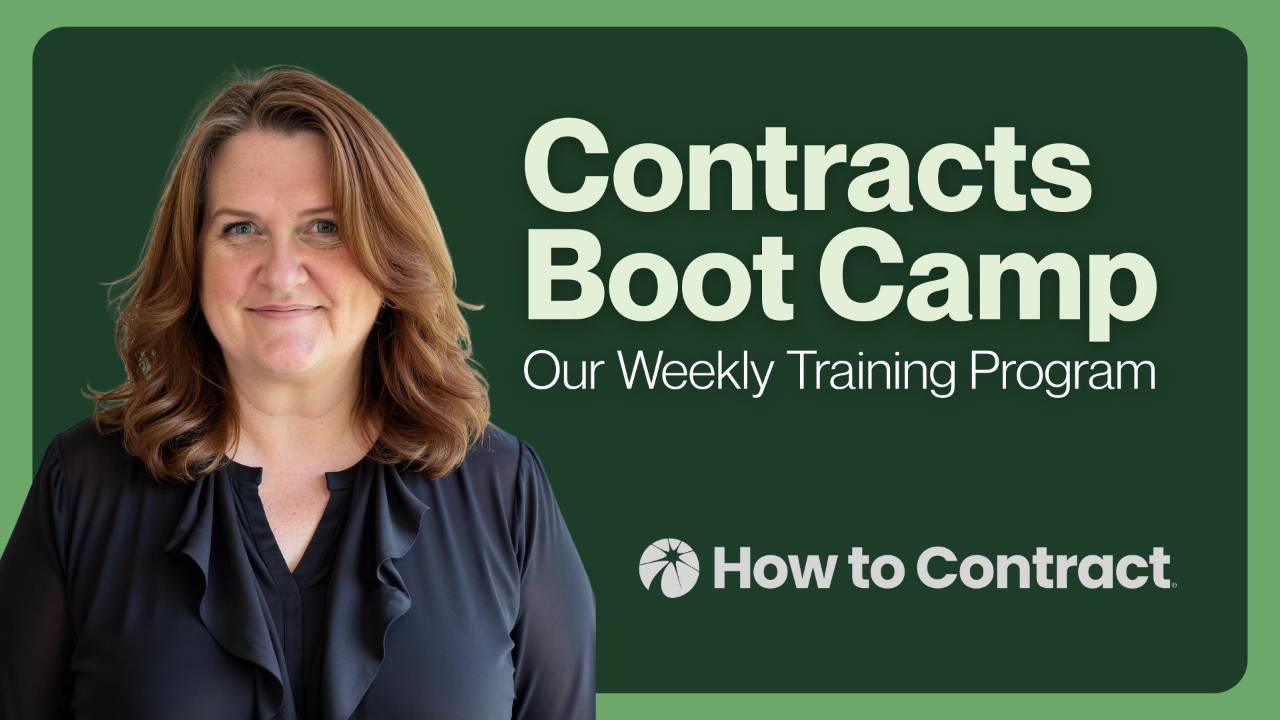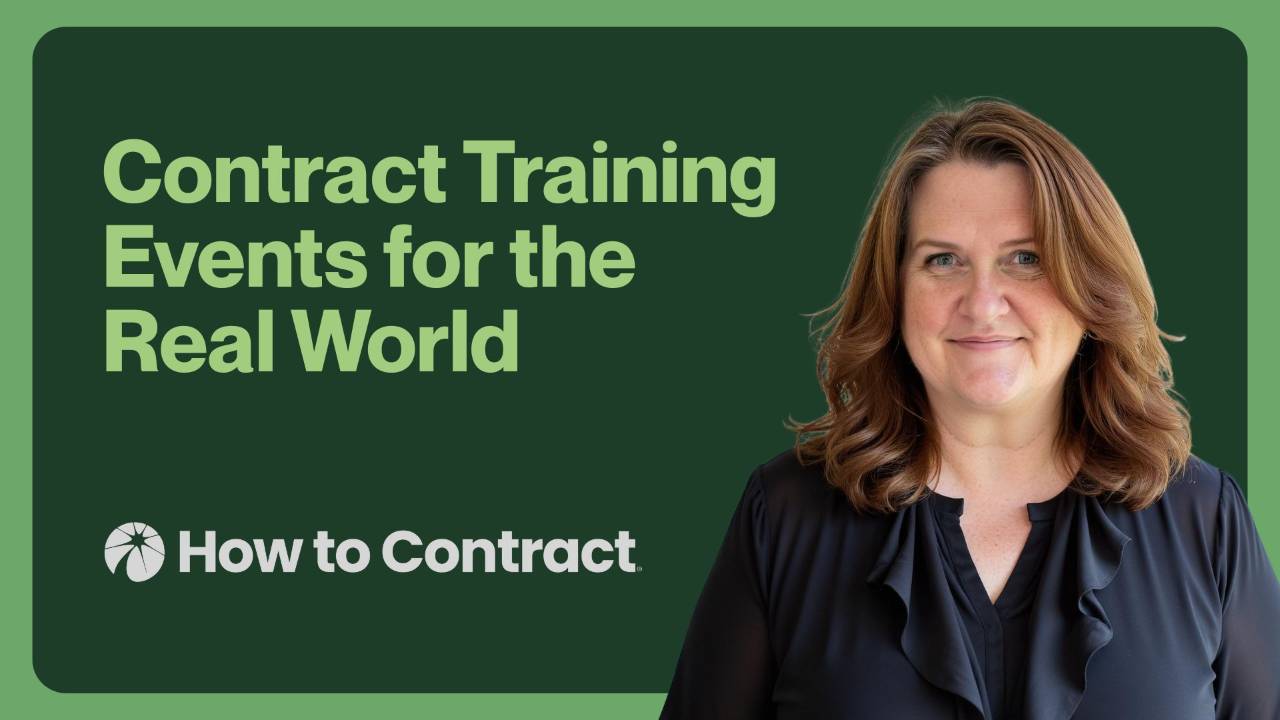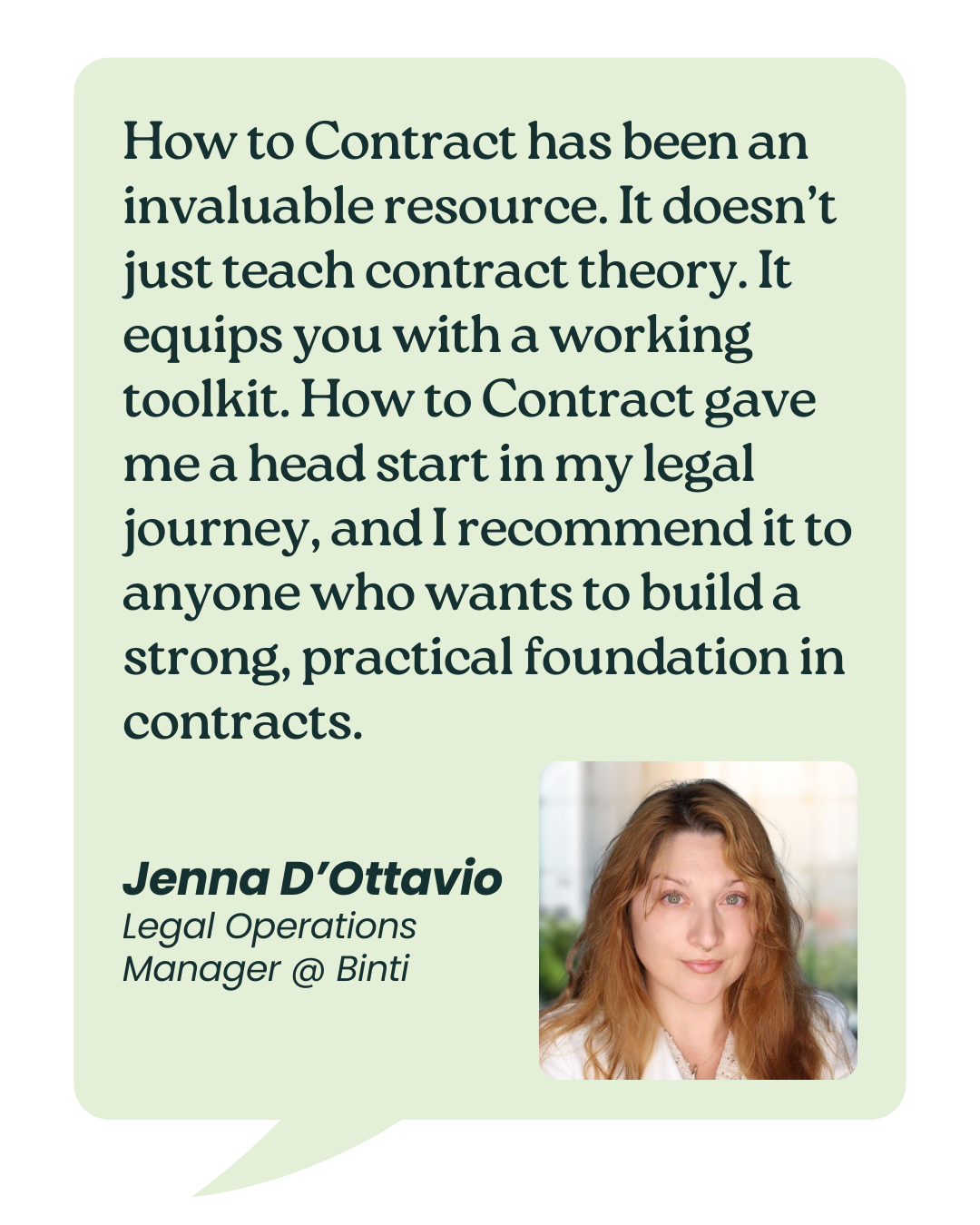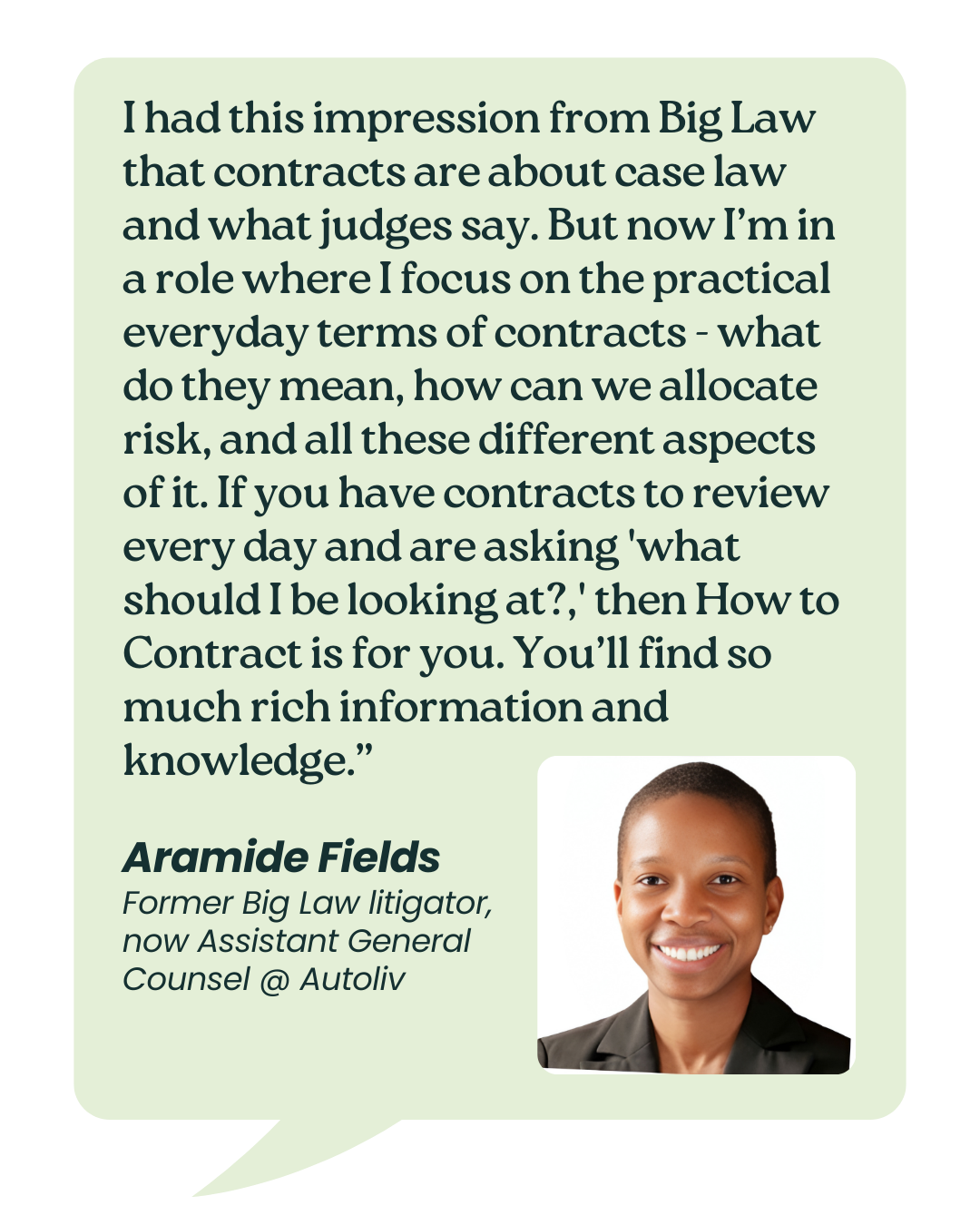
How I Contract: Interview With Pablo Mourente, Senior Legal Counsel at OVHcloud
We interviewed Pablo Mourente, Senior Legal Counsel at OVHcloud, and a dual-qualified lawyer in Canada and Brazil as part of the How I Contract interview series. We speak with experienced contract lawyers and professionals about their experiences and advice for working with contracts.
The Journey to a Career in Contracts
Can you tell us a story about what brought you to this specific career path? How did you start working with contracts?
I started working with contracts around 2007 when I was still in law school — so even before I first got licensed to practice law in Brazil (which happened in 2011). At that time I was working at my family’s business, which was an engineering design firm having as clients large industrial plants.
It’s interesting that, as I was the only one at the company with a legal background, I used to review the contracts we were entering into. So since the beginning, I was exposed to several contracts drafted by the legal departments of these multinational industrial groups that were our clients as well as by the big firms that worked for them.
As you can imagine, I ended up learning by myself the practical aspects of this work, which is a very hard way but makes you develop very strong skills and a unique approach. I needed to draw my own conclusions and had nobody in the very beginning to tell me what to do or how to do it.
This first experience I had, along with other experiences I had later on in my career, both in-house and in law firms, in Brazil and also after moving to Canada and getting licensed there as well, made me experience a very diverse range of contracts involving deals of different sizes.
The Ideal 30-Day Plan for Contract Lawyers
What should your first 30-day plan look like when you start working with contracts?
Read as many contracts as you can and focus on the ones you know were drafted by experienced and competent professionals.
When I started out, I tried to read every contract I had contact with: The ones the company I was working at was entering into, even if they were contracts that I did not have to review, as well as the contracts that I had to sign in my personal life.
I used to do that during my free time, as I considered that as training to develop my skills, which would be useful for me for the rest of my professional career.
It didn't fit into my day. But if you want to become good at something, you need to go that extra mile.
Take the time to understand every single section and provision in the contracts you read.
Don’t skip it if you do not understand 100% of it.
Also, pay attention to the contracts you enter into in your personal life. Seeing them as a party and not only as a lawyer will make you smarter and more strategic in your legal practice.
Rinse and repeat.
How did you learn contracts? Could you share specific steps you took and learning resources you used? What learning mistakes did you make along the way?
Since I was working at a company where I was the only legal professional and at that time I think there was no resource such as How to Contract (or at least I did not know any), the process was pretty intuitive from my side.
I remember trying to find books about it but most of them were about the legal fundamentals of contract law and not about the practice of reviewing/drafting contracts.
From the beginning, I had the chance to review many contracts drafted by the legal departments of multinational industrial groups that were our clients as well as by the big firms that worked for them.
I always tried to pay attention to the patterns that are possible to identify among these numerous contracts.
These patterns represent most often the market standards.
Since most times there is no right and wrong when it comes to contract work, reviewing multiple contracts is a way to get you in contact with different best practices.
I like to compare the job of a contract professional with a pilot job. It requires "flight hours" to become a better professional since a great part of the job only practical experience can teach you.
Of course, there are "simulators" that can speed up this process. In the case of contract professionals, the simulators are the rich practical material available nowadays, such as How to Contract.
If I had to learn how to work with contracts from scratch now, I would certainly binge-read all valuable resources that are currently available about working with contracts from a practical perspective, such as "How to Contracts" and Ken Adams' blog, as well as many other resources in the form of videos or podcasts.
Another valuable source of legal content is articles and webinars published by law firms on the internet. For example, many webinars that were presented during the pandemic by law firms are still available online for free.
Overcoming Challenges When Learning Contracts
What is the biggest challenge you had to overcome when learning contracts? How did you do it?
The biggest challenge is the fact that, since it is mostly based on best practices, it takes time for you to master it and there’s a lot of undocumented knowledge.
Also, law schools focus only on the theoretical legal fundamentals, which are important but are far from being enough for real-world practice. They could explore more practical exercises of reviewing contracts from a practical perspective.
What I did to overcome that was to try to read as many real contracts as possible and take the time to understand every single section and provision in the contracts I was reading. I also read a lot of legal decisions about the provisions where I was not sure about the interpretation.
Avoiding Common Mistakes in Contract Work
What mistakes should contract lawyers and professionals avoid when working with contracts? If you have a story to share, please do :)
The most common mistake lawyers and professionals should try to avoid is accepting the wording of some provisions just because it seems boilerplate and it came from a “trusted source”.
Just trust your gut: if something does not make sense to you, maybe it’s because it does not make sense at all, or at least not in your jurisdiction or in your language, but somehow everyone keeps repeating that as a mantra.
At the beginning of my career, a lot of times I did not trust my own way of reviewing or drafting contracts, just because I developed it by myself.
Because of that, many times I spent much more time than I should have on something just to make sure that what was doing was correct.
I overcame this kind of mistake once I acquired enough experience to realize that the deals in which I had participated in drafting or reviewing a contract just went well.
So I figured out that most times there's no right or wrong in contract drafting or reviewing, and that if you ask two different experienced lawyers to draft or review a contract, you will most likely get two very different outputs.
What should you do after you make a mistake in a contract? Could you give an example of a specific wording you would use to inform others about that mistake?
The first thing to do is not hide that from the stakeholders on your side of the transaction that will deal with that contract after it’s signed.
With that information in mind, these stakeholders will be able to anticipate any issues that may arise and try to mitigate them.
What is your #1 contract management tip? Why?
The most important tip is to read the contract and use that as a handbook, as most answers should be there.
The contract should be a handbook for the team that deals with the performance of its object, and not only an archived document to be used in case of legal dispute.
Sometimes people think that some answers come from a mysterious case or doctrine that only lawyers know but many times the answer is just clear in the appropriate section of the contract.
When a contract is well-drafted, lawyes should be consulted only in case of divergence of interpretation and not every time someone utters the word “contract”.
What is the one burning question you had when you started working with contracts and how would you answer it now?
The biggest question, especially when you have no proven templates is: “Am I doing it right?”
I would say to my younger self: “There are several ways of doing it right and addressing the main issues. If you understand the deal and the applicable law governing that kind of transaction, everything is going to be OK”.
If you could give just one contract tip, what would that be?
If someone who does not know the deal does not understand how the deal works only by reading the contract, it means the contract is not addressing all the issues it should address.
To fix that, the first thing to do is not hide that from the stakeholders on your side of the transaction that will deal with that contract after it’s signed.
With that information in mind, these stakeholders will be able to anticipate any issues that may arise and try to mitigate that."
What mistakes should you avoid in contract negotiation?
I would list two:
- Spend too much energy on minor issues; and
- Overlook what is your exact BATNA (Best Alternative to a Negotiated Agreement).
What is the biggest myth about contracts you’d like to debunk? Why?
The myth is that (written) contracts are advisable only for legal reasons.
In fact, they also have a tremendous psychological effect on the parties feeling much more compelled to do something if it’s stated in a formal written agreement, even if it would be binding otherwise anyway.
Also, having an obligation in a written agreement signed by the other party serves as an excellent way of leveraging a negotiation if you need to convince the other party that you are right, even if this same obligation is provided for by a statute.
How can you know you are great at contracts? What makes one a great contracts lawyer or professional?
One can know that he/she is great at contracts when the business teams who work with him/her are happy to do so and see this lawyer/professional as a business enabler and not as a bureaucrat.
Lessons from Multilingual and Multijurisdictional Contract Work
You have worked with contracts in three different languages: English, French, and Portuguese. How was your experience different (or similar)? What did you like most in every version? What are the advantages every version has?
Having worked with contracts in these 3 languages and in 2 different jurisdictions (Brazil and Canada), both in-house and in private practice in each one of these jurisdictions, I can say that high-profile contracts tend to be similar to big firms and big companies use world-class best practices.
Also, these firms and companies work on many international deals, so they also learn from the sophisticated lawyers that advise their counterparties, so everybody ends up following some similar standards.
Of course, there are some adaptations that need to be made to address some issues that are more relevant in a given jurisdiction.
For example, in Brazil service agreements have several sections that deal with the risk of the client becoming liable for amounts due to the contractor’s employees, which is not a relevant risk in Canada.
On the other hand, in Canada, particularly in the province of Quebec, there are some language requirements so not all contracts can be written in English, for example, even if both parties can speak such language. In some cases, violation of these requirements can cause a contract to be deemed null.
One very important thing to keep in mind is that translating a contract from one language to another is different from adapting it to the local law, which I prefer to call localization.
Lesson From a Career in Contract Law
What advice would you give to your younger self when you started working with contracts?
Trust your approach. Most times there’s no right or wrong.
Could you share the biggest lesson you’ve learned while working with contracts?
I think I could say the fact that a written contract must reflect the real deal, including the essence of what was commercially agreed, and not only the so-called legalese.
Who are your contract mentors you are grateful to? Why?
I think the best mentors I had were non-lawyers who somehow participated in the deals where I was drafting or reviewing a contract and who asked me to include particular provisions in those contracts.
They were asking that because they knew the real need for those provisions and had probably experienced situations where such provisions were missed, and not because it was a boilerplate provision or someone had told them to do so.
I learned (and am still learning) a lot with those requests.
What is your favorite work of art depicting lawyers and/or contracts, if any? Why?
Even if it’s very exaggerated and not real, I like Suits very much.
It’s a funny show and at least the depicted environment of a corporate lawyer’s life at a fancy firm seems to be pretty accurate.
Also, I remember watching the film “12 Angry Men” when I was in law school and enjoying the reflections it caused about the justice system as a whole.
What do you like about contracts? Why?
I think what I like most is that contracts are everywhere and affect everyone’s lives, even if many people don’t realize that and think that contracts exist only when they sign a document titled “contract”.
Another aspect I like very much is that most times there’s no right or wrong in drafting contracts, but just best practices and a lot of creativity.
What is the most irritating thing about contracts? Why?
I think the most irritating thing is when your client already has the full deal set up with the other party, sometimes even already running, and just asks you to “put that on paper.”
It leaves no room for negotiation as the other party already has the deal in place.
It makes me think that many people don’t realize that we cannot separate a (written) contract from the underlying deal or transaction.
Thank you, Pablo!
How to Contract's membership is designed to help you build real-world expertise with commercial contracts. Get access to our comprehensive system of live and on-demand courses, weekly lessons, detailed playbooks, and more. Join today!

